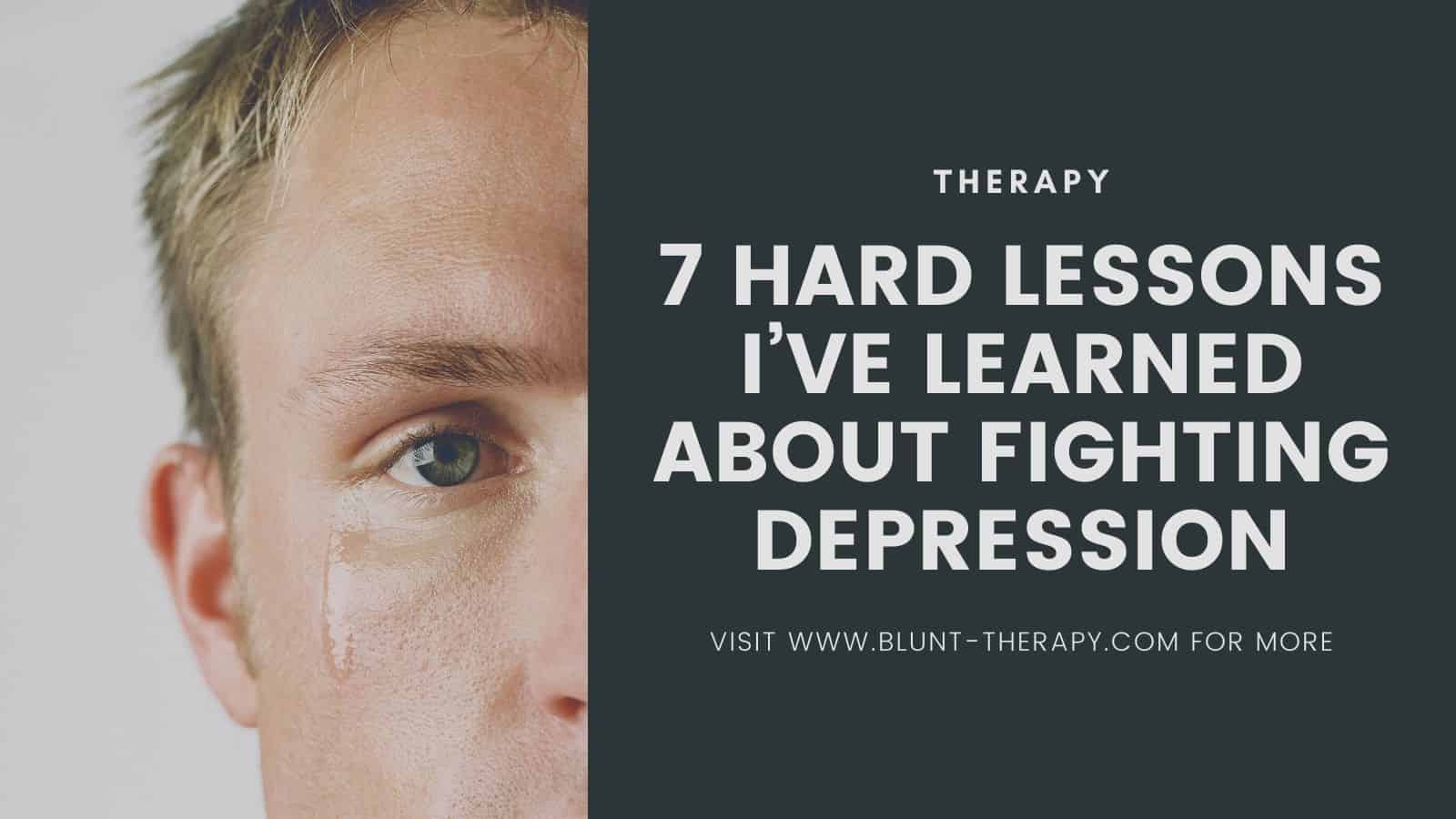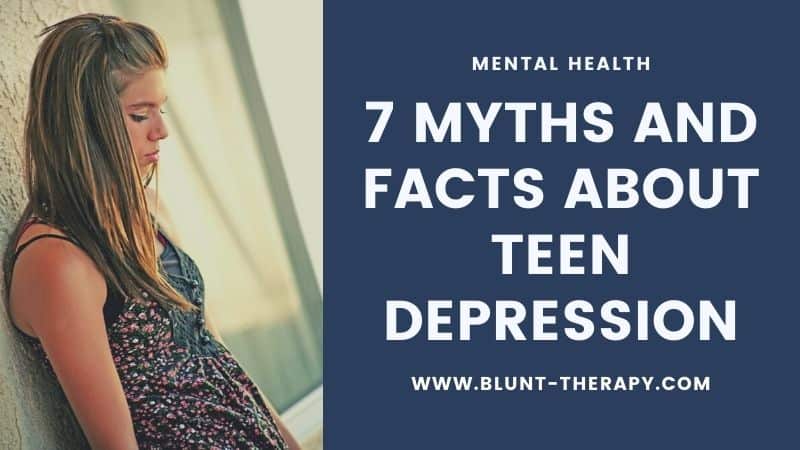Table of Contents
Affiliate link notice: As an affiliate of BetterHelp and other third-party vendors, We will receive compensation if you make a purchase using the links provided on this page. For more information, visit our disclosure page.
Last Updated on October 7, 2022 by Randy Withers, LCMHC
I’m no stranger to therapy. When I was 22, I was diagnosed with depression and anxiety after I had a panic attack that was so bad I hid in my bathroom for two days.
That was in 1997. I’ve been in therapy, off and on, ever since. Over the years, I’ve seen a dozen different licensed therapists. I haven’t had a panic attack in years, but my depression lingers. You know how it is.
I’ve been a licensed mental health professional since 2014, but I had never looked into virtual counseling. Could it really be comparable to traditional face-to-face therapy?
Over the past year, three different virtual counseling platforms have hooked me up with trial subscriptions. As a result, I’m pretty familiar now with how it works.
With COVID-19, I’ve even started doing online therapy with my own clients. That’s given me a unique perspective on the subject.

What You’ll Learn
So, if you’re here to learn more about virtual counseling, you’re in the right place. By the end of this article, you’ll learn about everything you need to know to find out if online counseling is right for you.
Along the way, we’ll talk about its benefits and drawbacks, how it’s different from traditional therapy, and how you go about signing up for services.
I’ll also share my experience with three of the major providers:
I am an affiliate for all three, but I wouldn’t recommend any of them if I didn’t think their services were first-rate. Read my affiliate disclosure if you have any questions.
With all that said, let’s get down to brass tacks. Let’s start with the obvious question – what exactly is virtual counseling?
Here’s a few related articles we’ve written about online counseling:
- Is Online Therapy The Right Move for You in 2020?
- The Definitive Guide to BetterHelp Online Counseling
- Ask These 3 Questions To Find Out If Online Therapy Is Right For You
What Is Virtual Counseling?
Virtual counseling has gone by many names over the years. In fact, you’ve probably heard of at least one of the following:
- Online Counseling
- Online Therapy
- E-Counseling
- Teletherapy
- Telemental Health Counseling
- E-counseling
- Distance Counseling
- Chat Therapy
- Remote Counseling
- Virtual Therapy
These terms all mean the same thing. Virtual counseling is therapy performed by a licensed mental health professional that you receive online. Usually, virtual counseling services are offered via your smartphone, video, and text. Most providers offer all three options, though as a client you get to choose which modes work best for you.
Because of COVID-19, many traditional face-to-face therapists have temporarily switched to virtual counseling due to social distancing and quarantine procedures. For example, my therapist and I use Zoom to do our thing. When the quarantine lifts, we’ll go back to meeting in-person.
If you don’t have a traditional therapist though, no need to fear. There are plenty of virtual counseling platforms that operate online. And they will continue to do so long after the quarantine has lifted. Unfortunately, there are millions of people in need of their services.
Link: Search for online therapists in your area.
Is Virtual Counseling Free?
The short answer is no. While there are a handful of sites that offer “free online counseling,” you need to know that what they’re offering is not actual counseling. It’s peer support. That means volunteers who are trained to use active listening skills. These can be, and often are, teenagers and college students.
While any support is better than no support, it’s always better to see a licensed professional.
If you need legal advice, you don’t go to the first person who offers you free legal advice. They may not know what they are talking about.
The same holds true for virtual counseling. You want to make sure that your virtual counselor is well-trained, well-educated, properly supervised, and licensed. This is your life, after all.
So, for the purposes of our discussion, when I refer to “virtual counseling,” I’m talking about professional, paid services where the therapist you’ll be seeing has the following minimum qualifications:
- Masters or Doctoral Degree in Counseling, Social Work, or Psychology
- Fully licensed to practice in your State
- Trained to provide virtual counseling services (i.e., telehealth)
- Answers to an Ethics Board and is subject to Federal and State requirements, including background checks.
If you are dealing with a problem that’s too big for you to handle on your own, I want you to get help from someone who is qualified.
Virtual Counseling Versus Traditional Counseling
At this point, you might be wondering what the difference is between virtual counseling and traditional counseling. It’s a great question. And you’re right to ask it.
In terms of quality, I’m not sure there is a difference. Virtual counselors are identical to face-to-face therapists in terms of education and training.
However, there are some situations where traditional therapy is the better option. Look at the following list of common scenarios. Online counseling is NOT appropriate if:
- You require a formal mental health diagnosis.
- You need intensive treatment for an alcohol or drug use disorder.
- You deal with psychosis, delusions, and/or hallucinations.
- You are actively suicidal or homicidal.
- You don’t feel comfortable using video, phone, or text-based communication
- You have an eating disorder or suffer from a serious mental illness such as schizophrenia.
- You are currently experiencing Domestic (DV) or Intimate Partner Violence (IPV).
If anything on that list describes you, virtual counseling isn’t a good option.
If none of those apply to you, here is a non-exhaustive list of things that ARE appropriate for both virtual counseling:
- Marriage and Relationship issues
- Work/Life Stress Management
- Communication
- Self-Esteem
- Substance abuse
- Life and Career Changes
- Grief
- Anxiety and Depression
- Setting Boundaries
- Parenting Issues and Concerns
- Mindfulness and Relaxation
- Social Anxiety and Phobias
- Life Coaching
- Spirituality
- Setting and Achieving Goals
- Chronic Illness
- Trauma and Resiliency
- Skills Building
Can you think of anything else that should be added to the list? Leave a comment if you see something missing.
So, virtual counseling is perfectly appropriate for the vast majority of things that people go to regular therapy for. It’s just that you don’t have to leave your couch to do it.
But is virtual counseling as effective as traditional therapy? Let’s see what the research says.
Is Virtual Counseling As Effective As In-Person Therapy?
Virtual counseling has actually been around for several decades. One of the first times it was used was in the late 1950’s, when doctors at two different hospitals in two different states used a closed-circuit television link to do psychiatric consults.
Online counseling traces its roots back to the mid-80’s, when Cornell University established a mental health Q&A forum. Over the years, it has morphed into what it is today, a high-tech, convenient, and secured online forum where people like you and me have access to their very own licensed therapist.
So it’s been around awhile. As a result, there’s research that says it’s quite effective.
Remember how I gave you a list of things that aren’t really suitable for online therapy and a list of things that are? I’d review that list if you have any concerns.
In some respects, the question is unfair. We’re not comparing apples to apples. There’s a lot more to it. For example, are you the kind of person who just prefers to be in the same room as your therapist? If you are, virtual counseling isn’t for you.
However, if you have social anxiety, or you live in a rural area, or have limited access to services, or if transportation is a problem, or maybe you just prefer online interaction, virtual counseling may be a perfect fit.
It boils down to personal preference.
I like seeing my therapist in person. However, I also liked having late-night text-sessions with my virtual counselor. In fact, one time she spent about two hours texting with me about a relationship issue I was having. It was fantastic.
Think about your needs, your wants, and your preferences. Those matter most. Everything else is just someone else’s opinion. You need to do what’s best for you.
The Advantages of Virtual Counseling
Let’s talk about the things that virtual counseling offers that traditional therapy does not. While I am sure there are many more, I want to make three points:
- Virtual counseling is convenient. Assuming you have an internet connection, you don’t have to leave your home. All you need is a smartphone and some privacy.
- Virtual counseling is cost-effective. Especially if you don’t have insurance. Traditional therapists charge $200 or more for one session. For that price, you could talk with an online counselor almost every day for an entire month.
- Virtual counseling is private and secure. Communication between you and your therapist are secured and encrypted by state-of-the-art banking-grade 256-bit encryption. They use SSL browsing encryption and are fully HIPAA compliant. Also, your confidentiality is guaranteed as required by federal and state law.
- Virtual counseling is immediate. Look, I love my in-person therapist, but I have to wait two weeks to see her in between appointments. When I did online counseling, the longest I went between sessions was two days. There were also times when I had contact with my online counselor several times in one day.
Nothing against traditional therapy, but that last one was a major selling point for me. After all, who among us enjoys waiting?
What Are The Benefits of Virtual Counseling?
I used three different providers over a period of several months. Honestly, I wasn’t sure what to expect. I enjoy connecting with other people, so I wasn’t sure that this was possible with an online counselor.
I was wrong.
Here are three of the biggest benefits I discovered:
- My therapists did an excellent job reflecting, clarifying, and validating my feelings. I always knew they understood where I was coming from and how I was affected by certain situations.
- I valued how fast my counselors responded to my messages. Talk about feeling supported. Response times ranged from a few minutes to a full day, and that was more than enough for me.
- You can choose to leave messages, or you can schedule blocks of time where you get your therapist’s undivided attention. If I wanted quick feedback, a text was perfect. If I wanted to process something, a scheduled session worked better.
Of course, the best part about virtual counseling is your therapist. Once you get used to one another’s communication style, you’ll see that it’s easy to confide in them. I was eager to get messages from my therapist. I learned something every time I did.
What Are Some of the Drawbacks of Virtual Counseling?
Nothing in life is perfect. We all know that. Online counseling isn’t for everyone, nor is it always the best option. As you make your decision, consider whether the following matters:
- Most online counseling is not covered by insurance. The best thing you can do is contact your insurance provider and ask them if online counseling is covered under your plan. The good news is that TalkSpace recently started accepting some types of insurance. Visit their website to learn more.
- The monthly cost can be a lot for some of us. While therapy is easily the best investment you can make for yourself, you also have to look at your budget and make decisions accordingly.
- You need access to the internet and a smartphone. If you don’t have either one of those, online counseling isn’t a good option.
Who Is The Ideal Candidate For Virtual Counseling?
If you’re still reading this post, there’s a good chance that online counseling is right for you. If you’re still undecided, ask yourself the following questions:
- Do you enjoy and even prefer text-based, video, and/or phone communication?
- Are you without insurance and unable to afford traditional therapy?
- Do you live in a rural area, or have limited access to transportation or services in your area?
- Do you struggle with social anxiety and feel more comfortable in your own home?
- Do you enjoy using technology?
- Do you prefer having the option to stay in daily contact with your therapist?
If you answered yes to one or more of those questions, I’d give online counseling a shot. You can visit BetterHelp and search for local therapists that you might enjoy working with.
What Are The Best Online Virtual Counseling Providers?
There are dozens of online counseling providers to choose from. So how do you know which one to choose?
You might start with looking at the industry leaders. They got to be leaders by providing first-rate clinical services that their clients appreciate and enjoy. They are also well-reviewed, with websites that offer detailed explanations of their programs, costs, and membership structures.
I’ll give you a brief overview of the three online counseling providers of which I have direct and personal knowledge. Each one does things a bit differently, so I’ll make sure to highlight anything that stands out.
BetterHelp

Their Mission: Making professional counseling accessible, affordable, convenient – so anyone who struggles with life’s challenges can get help, anytime, anywhere.
- Offers video, phone, and text-based sessions
- All counselors are fully licensed mental health professionals
- Specialized tracks for teens, couples, LGBTQ, and faith-based communities.
- Free app available on Google Play and The App Store
- Discounted student plan and various membership options
Visit BetterHelp and get 10% off your entire membership with this link.
TalkSpace

Their Mission: to provide more people with convenient access to licensed therapists who can help those in need live a happier and healthier life.
- Offers video, phone, and text-based sessions
- All counselors are fully licensed mental health professionals
- Now offering psychiatry and Employee Assistance Programs (EAPs)
- Discounted student plan and various membership options
- Special tracks for teens and couples
- Free app available on Google Play and The App Store
Visit TalkSpace and get $80 off your membership with code FALL80
Online-Therapy.com

What They Are: A dedicated online-based team of consultant therapists, cognitive-behavioral therapists, practitioners, and support staff that collaboratively works to help people in need of emotional support.
- Uses Cognitive Behavioral Therapy (CBT). CBT helps you to identify, challenge and overcome your dysfunctional thoughts, behaviors and emotions.
- All counselors are fully licensed mental health professionals
- Messaging and live-chat sessions.
- Offers Yoga and Meditation.
- Easy to access through your smartphone.
- Measure progress with worksheets and journals
Visit Online-Therapy.com and get 20% off your first month of therapy.
Final Thoughts
Whether you call it virtual counseling, online therapy, or telehealth, one thing remains clear — Online counseling provides easy low-cost, secure, and easy access to highly qualified and licensed mental health professionals.
It’s a miracle for millions of people who don’t have the ability to participate in traditional face-to-face therapy.
While there are a number of options to consider, your best course of action is to do your own research and make the decision that best fits your needs, your preferences, and your lifestyle.
I had a great experience with my online providers, and I’m confident that you will, too.
If you’ve never had therapy before, the best advice I can give you is to be honest, open-minded, and willing to try new things. Whether it is a new coping skill or a new way of thinking about your problems, the tools you learn in therapy will change your life.
Get started today. Your new life awaits!
What do you think about virtual counseling? Please leave your comment below.











Great content. easy to understand.
keep up the good work
It’s amazing how you can now talk to your therapist or psychiatrist anytime using a process called virtual therapy. My friend is looking for tips on how to get help from her depressive thoughts since everyone is distancing because of the virus. I’ll go ahead and recommend this to her so she’d consider it.
It’s a wonderful opportunity for many.
Virtual sessions are good in a sense that you don’t have to reveal your identity even to a bit, so you can talk more freely. But the things that your psychologist might notice in a physical session won’t be there. So, it both has good and bad.
Hi Randy, thanks for sharing with us this guide. Do you have a downloadable pdf version of this? or a podcast? Also, have you heard of neurofeedback?
This is a great times for therapist to use online as a new way to treat people, because of people are doing more on online activities. Thanks for sharing this.
My sister called me up last Friday night where she told me about how she has been feeling depressed lately after losing her job. She has been looking into virtual counselling services to help her out with her mental health and that’s why I decided to help her out with some research. I really liked where you pointed out that it is flexible as you can choose to leave messages or rather schedule blocks of time with your therapist. A good point indeed, where I’m sure those like my sister will be glad to have learnt of. I’ll make sure to share this with her in a bit, thank you!
Glad you found it helpful!
Thanks for sharing such an amazing and informative blog. This guide is really good for those who are trying to get online therapy.
I like how you mentioned that virtual access is easy to access to a trusted psychiatrist. My cousin mentioned to me last night that he is planning to have a consultation because he is having issues with anxiety and asked if I have any idea what is the best option to do. Thanks to this informative article and I’ll be sure to tell him that he can try to consult a trusted virtual lifestyle psychiatrist as they can help him with his concern.
Thanks for explaining that there are a lot of terms synonymous to teletherapy. I’m interested in looking for professional counseling services because I have been suffering from some mild anxiety attacks lately. I think that they might just get worse if I don’t try to get help soon enough.